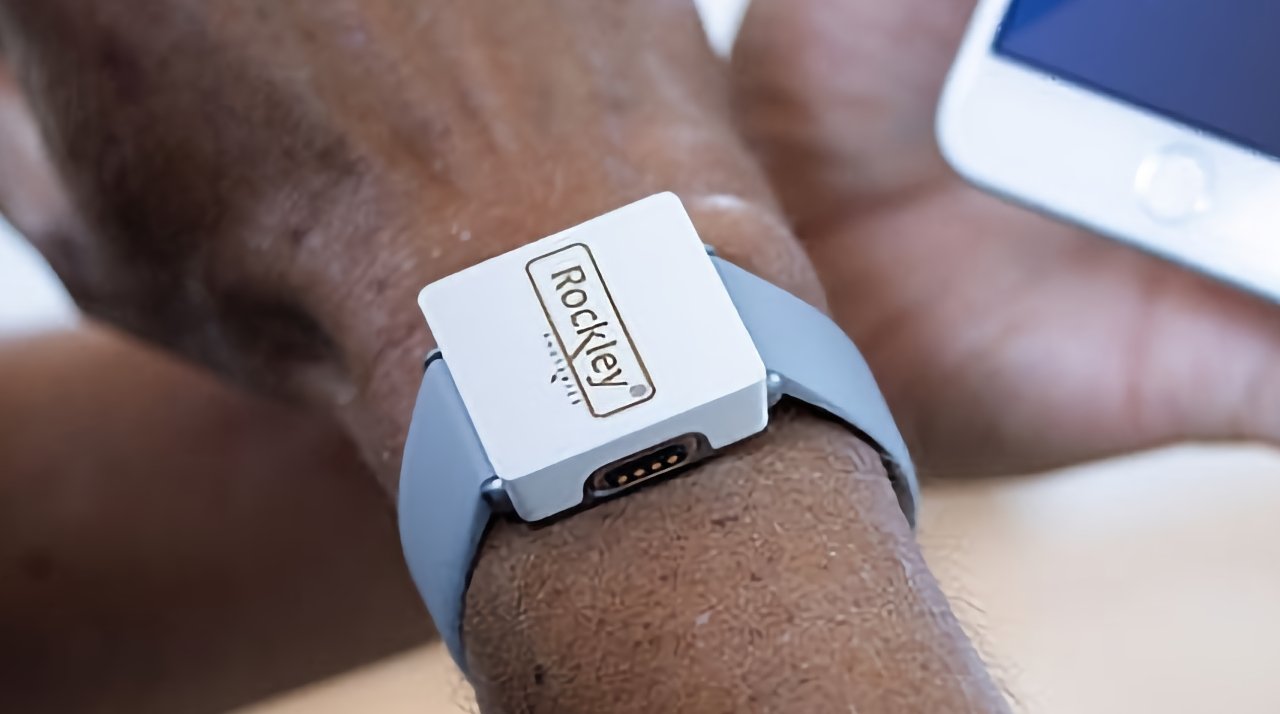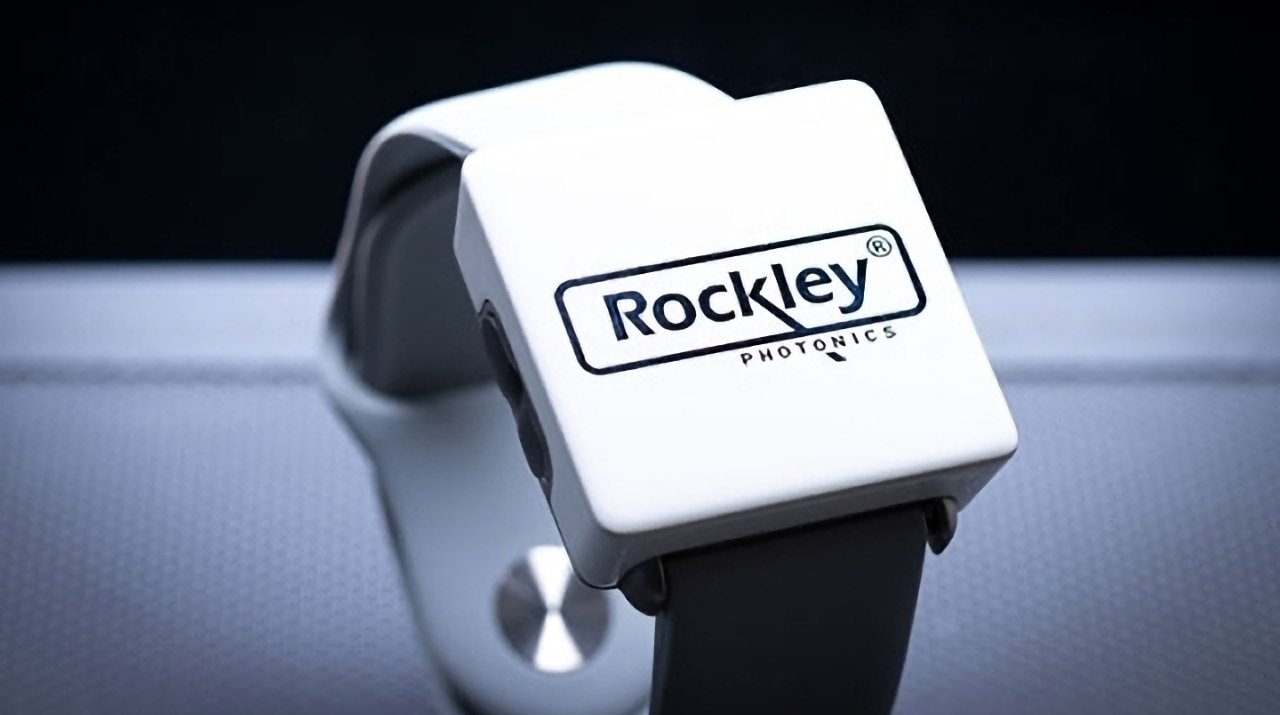Apple supplier launches non-invasive glucose monitor & health sensor tech
A new "clinic-on-the-wrist" digital health system from Apple supplier Rockley Photonics backs up expectations that the Apple Watch will ultimately gain non-invasive glucose monitoring.

Rockley Photonics is testing a "clinic-on-a-wrist"
Apple has reportedly been working on a glucose monitoring system for the Apple Watch for many years, with some rumors pointing to its inclusion in the forthcoming "Apple Watch Series 7". That hasn't been considered likely, based on the complexities of the technology, but a new release from Apple supplier Rockley Photonics may change that.
The UK company, known to have a significant relationship with Apple, has announced what it describes as a "complete full-stack" wearable health system.
"Rockley's sensor module and associated reference designs for consumer products integrate hardware and application firmware," said the company in a statement, "to enable wearable devices to monitor multiple biomarkers, including core body temperature, blood pressure, body hydration, alcohol, lactate, and glucose trends, among others."

Notice the Apple Watch Sport Band on this test system
As revealed by the company, the system will be used in "a sequence of in-house human studies" over the next few months. The system is approximately the size and shape of an Apple Watch -- to the extent that publicity photos show it using an Apple Watch Sport Band.
However, it's unlikely to be released to the public in this form -- or directly by Rockley Photonics. Instead, this is a test platform that will adapted by other firms.
"Our reference designs will significantly aid our customers and partners with the deployment of our technology and accelerate their own scalable, high-volume product delivery," continued the company.
If Apple uses Rockley's technology in a future Apple Watch, it will work by generating "a large number of discrete laser outputs from a single silicon chip." This sensor "non-invasively probes beneath the skin" to gain health measurements.
Rockley Photonics says that its system uses infrared spectrophotometers to detect and monitor a wider range of health issue than the green LED systems in most wrist devices.
The company says that its system will allow it to "analyze blood, interstitial fluids, and various layers of the dermis for constituents and physical phenomena of interest."
Keep up with everything Apple in the weekly AppleInsider Podcast -- and get a fast news update from AppleInsider Daily. Just say, "Hey, Siri," to your HomePod mini and ask for these podcasts, and our latest HomeKit Insider episode too.If you want an ad-free main AppleInsider Podcast experience, you can support the AppleInsider podcast by subscribing for $5 per month through Apple's Podcasts app, or via Patreon if you prefer any other podcast player.

Rockley Photonics is testing a "clinic-on-a-wrist"
Apple has reportedly been working on a glucose monitoring system for the Apple Watch for many years, with some rumors pointing to its inclusion in the forthcoming "Apple Watch Series 7". That hasn't been considered likely, based on the complexities of the technology, but a new release from Apple supplier Rockley Photonics may change that.
The UK company, known to have a significant relationship with Apple, has announced what it describes as a "complete full-stack" wearable health system.
"Rockley's sensor module and associated reference designs for consumer products integrate hardware and application firmware," said the company in a statement, "to enable wearable devices to monitor multiple biomarkers, including core body temperature, blood pressure, body hydration, alcohol, lactate, and glucose trends, among others."

Notice the Apple Watch Sport Band on this test system
As revealed by the company, the system will be used in "a sequence of in-house human studies" over the next few months. The system is approximately the size and shape of an Apple Watch -- to the extent that publicity photos show it using an Apple Watch Sport Band.
However, it's unlikely to be released to the public in this form -- or directly by Rockley Photonics. Instead, this is a test platform that will adapted by other firms.
"Our reference designs will significantly aid our customers and partners with the deployment of our technology and accelerate their own scalable, high-volume product delivery," continued the company.
If Apple uses Rockley's technology in a future Apple Watch, it will work by generating "a large number of discrete laser outputs from a single silicon chip." This sensor "non-invasively probes beneath the skin" to gain health measurements.
Rockley Photonics says that its system uses infrared spectrophotometers to detect and monitor a wider range of health issue than the green LED systems in most wrist devices.
The company says that its system will allow it to "analyze blood, interstitial fluids, and various layers of the dermis for constituents and physical phenomena of interest."
Keep up with everything Apple in the weekly AppleInsider Podcast -- and get a fast news update from AppleInsider Daily. Just say, "Hey, Siri," to your HomePod mini and ask for these podcasts, and our latest HomeKit Insider episode too.If you want an ad-free main AppleInsider Podcast experience, you can support the AppleInsider podcast by subscribing for $5 per month through Apple's Podcasts app, or via Patreon if you prefer any other podcast player.

Comments
One company has already revealed testing is in progress with release planned for later this year or next year.
As the industry picks up on this, it will represent a major step forward in health tracking.
i think glucose monitoring will have the greatest impact on diabetics but I can imagine it would be very helpful for everyone. (Maybe I do not need to have another piece of pie.)
As much as I love my watch, I can’t imagine wearing it 24/7/365.
How often is blood glucose being checked? Is it every 5 minutes or (more likely) an on-demand function. Continuous would be preferable for diabetics.
That makes it perfect for healthy people and diabetics alike or anyone who simply wants an indicator of overall health and basic advice on how to manage sugar related issuesm
With the possible exception of stress, 'sugar' related chronic inflammation is way up there on the list of major health problems with all kinds of associated diseases and cause of premature death.
In my particular case 24/7 would be perfect but, as you say, there is the charging time to take into account.
I would probably opt for night use to try and detect low glucose levels during sleep, then wait for a second generation device and use one during the day and the other during the night. This use case isn't for me personally btw.
Precision in itself isn't an absolute goal in this case but a correctly calibrated device could alert the user (especially useful to diabetics) to a trend and allow them to check glucose levels in a traditional manner and catch problems 'early'. Especially useful for unstable Type 1 diabetes with associated neuropathologies.
Big Data and AI will prove enormously helpful in dealing with 'sugar' related issues, too.
Currently I only use fitness bands but I would definitely move up to a full blown watch with a reasonaby reliable continuous, non-invasive blood glucose scanner.
A couple of points worth mentioning from my last week. First, the only over night issues were 2 warnings (loud beeps) for low sugars approaching 55 and one for high sugars, at 200. Otherwise I sleep well at night and would not have needed knowing my levels.
During the day I find I look at my sugars frequently and have been able to keep my sugars in control and almost eliminate the use of insulin. I also take a good, well advertised, pill that works as advertised. By frequently looking at my sugars I am taking about 5 - 10 views an hour. The Dexcom displays sugar levels every 5 minutes, making it easy to just glance. That level of information encourages you to change eating habits or patterns. A version of info on the Watch could result in the same benefits I have received with the Dexcom. People staying on top of the data can benefit pretty easily as long as they also adjust WHAT they eat.
BTW, having that level of information is also a good way to slowly lower your insulin levels, which can pay for these type of devices over a reasonably short time.